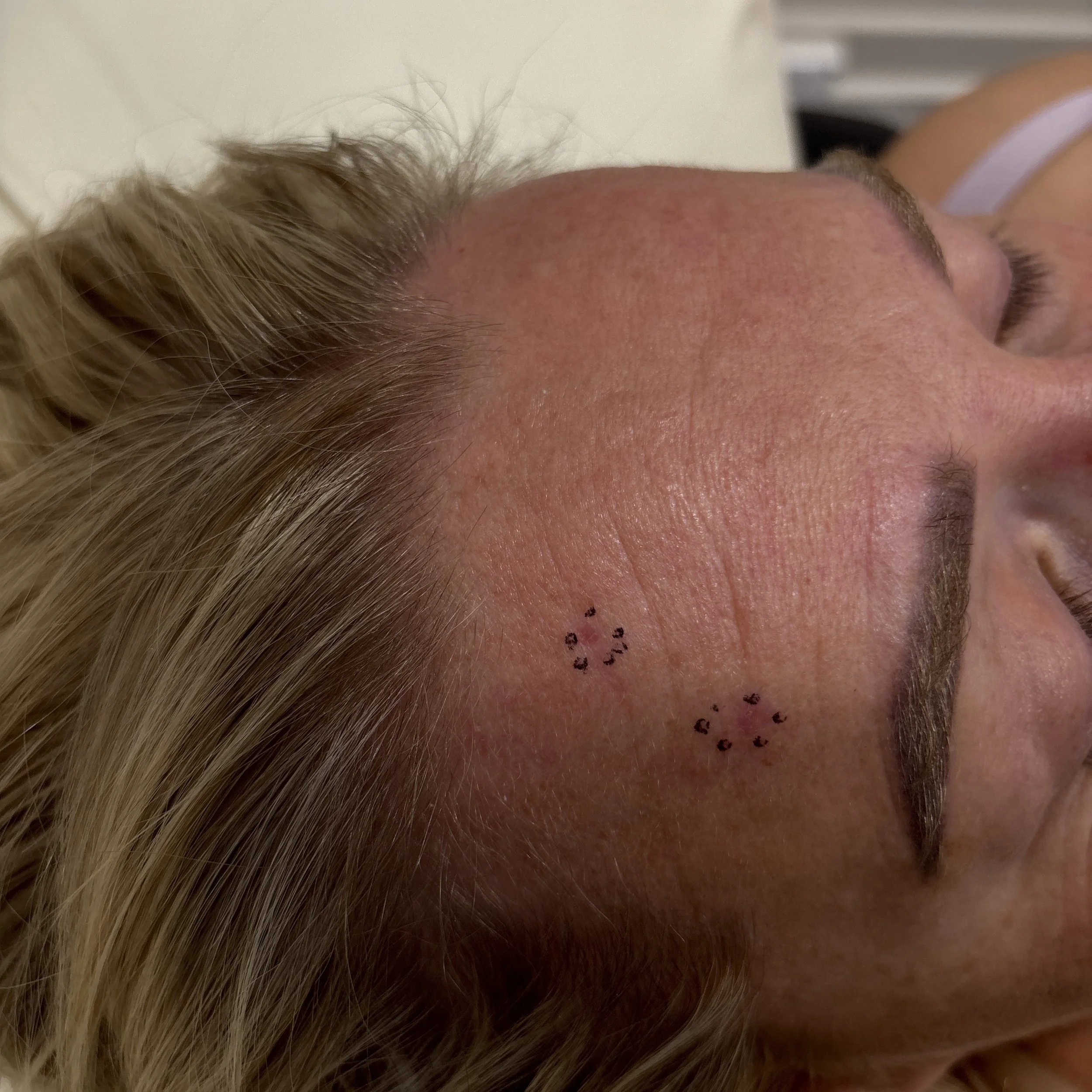Skin Cancer Stories: Alicia’s Journey
Skin cancer is a diagnosis that changes lives, but the stories of survivors like Alicia, our beloved medical practice receptionist, remind us of the power of resilience, early detection and awareness. Alicia’s journey with melanoma and basal cell carcinoma (BCC) shows courage and hope, offering inspiration and practical advice for others.
Alicia’s Story: Facing Melanoma with Strength
Several years ago, Alicia noticed a small, irregularly shaped mole on her neck that seemed to change over time. As someone who spent much of her youth enjoying the strong Australian and New Zealand sun, she initially brushed it off as a minor skin imperfection. When the mole began to grow, she sought medical advice. The diagnosis was melanoma, the most serious form of skin cancer, known for its ability to spread if not caught early.
“I was frightened and shocked,” Alicia recalls. “The word ‘cancer’ is so heavy, considering three of my grandparents passed away from various cancers and it is quite prominent on my dad’s side of the family. I immediately thought of my family, my kids and my partner. But my doctor reassured me that we caught it early, and that made all the difference.”
Alicia underwent surgery to remove the melanoma along with a small margin of surrounding tissue to ensure no cancer cells remained. The procedure was successful, and follow‑up since has been relatively uneventful. Recovery was physically and emotionally challenging, but Alicia leaned on her support system of family, friends and loved ones who rallied around her with love and encouragement. Regular skin checks are now a part of her routine to monitor for any new or changing spots.
A New Chapter: Facing BCC Diagnoses
Note: black spots are from marking pen
Years after her melanoma treatment, Alicia faced another challenge: two basal cell carcinomas on her forehead were detected at her most recent skin check. After a few rounds of skin peels she had brushed these tiny sores off as trauma to the skin and didn’t think anything of them. BCCs are the most common type of skin cancer and often develop after long‑term sun exposure. While less aggressive than melanoma, they still require prompt treatment. Alicia’s BCCs were treated with photodynamic therapy, and she will proceed to surgery if they recur.
“Going through melanoma made me vigilant, for myself and my children,” she says. “I knew the importance of regular skin checks, so when I noticed those rough, pearly patches on my forehead, I didn’t hesitate to get them checked. It’s a reminder that skin cancer doesn’t end with one diagnosis; you have to stay proactive.”
Lessons Learned: Alicia’s Prevention Tips
Regular skin checks: Schedule annual skin exams with a doctor or skin cancer clinic, and perform monthly self‑checks for new or changing spots. Early detection saves lives.
Sun protection: Wear broad‑spectrum sunscreen (SPF 50 or higher) daily, even on cloudy days. Reapply every two hours when outdoors, and seek shade during peak UV hours (10 a.m. to 4 p.m.).
Protective clothing: Choose long‑sleeved shirts, wide‑brimmed hats and UV‑blocking sunglasses to shield your skin.
Avoid tanning beds: Artificial UV exposure significantly increases skin cancer risk. Embrace your natural skin tone.
Know your risk: Fair skin, a history of sunburns or a family history of skin cancer increases your risk. Stay extra vigilant and book a skin check if these apply to you.
A Message of Hope
Today, Alicia is thriving, greeting patients with her warm smile and infectious positivity. Her journey with skin cancer has deepened her gratitude for life and her commitment to raising awareness. “If my story can inspire even one person to get a suspicious spot checked or slap on sunscreen, it’s worth sharing,” she says. “Cancer doesn’t have to be the end of your story; it can be the start of a stronger, more mindful one.”
Alicia’s story is a powerful reminder that skin cancer, when caught early, is often treatable. By sharing her journey, we hope to encourage everyone to take proactive steps such as regular skin checks and sun protection to protect their skin and prioritise their health.
Written by Dr Emily Alfonsi
MBBS, FRACGP, DRANZCOG
Medical Director, Shade Skin
Dr Emily is a skin cancer doctor with advanced training in diagnosis and treatment. She has personally detected and treated hundreds of skin cancers and is passionate about early intervention and patient education.

